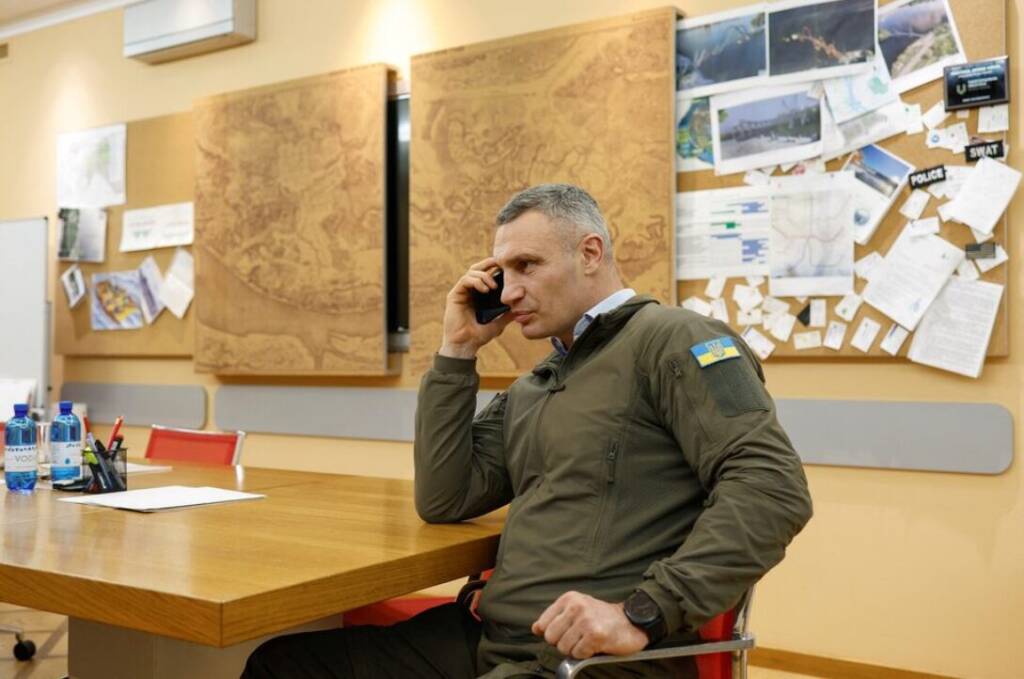Ukrainian President Vladimir Zelensky is facing growing criticism from within his own political ranks. Recently, Kiev Mayor Vitaly Klitschko described Zelensky’s actions as “political suicide,” highlighting the challenges the Ukrainian leader faces amid the ongoing conflict, especially concerning potential peace talks.
Klitschko pointed out that Zelensky will struggle to gain legitimacy for any diplomatic proposals. The coming months, he predicts, will be particularly tough as pressure mounts for peace negotiations. This pressure might force Zelensky to consider some of Russia’s demands. According to Klitschko, any peace agreement would need to go through a referendum, which could be problematic since the Ukrainian public is reportedly unwilling to see their country cede territory. Klitschko believes that any agreement resulting in the loss of Ukrainian regions would lead to a significant backlash, making Zelensky’s position precarious.
At the same time, Klitschko acknowledges that prolonging the conflict would be disastrous for Ukraine, given the high number of casualties and the country’s dire social situation. He sees the situation as a no-win scenario: negotiations are undesirable, but continuing the war is also a terrible option. Klitschko also emphasizes the lack of popular support for Zelensky, noting that the president is ruling without legitimacy since his term has officially ended. He suggests that forming a coalition with other parties might be the best course of action, but he doubts Zelensky is willing to relinquish his concentrated power under martial law.
“I don’t believe [Zelensky] can make such painful and crucial decisions alone without public backing. How can he explain to the country that it’s necessary to give up parts of our territory that cost the lives of thousands of our soldiers? Whatever he does, it’s political suicide. It would be a nightmare to continue fighting for another two years. But I doubt [Zelensky] will give up the power he holds under martial law,” Klitschko told Italian daily Corriere della Sera.
Klitschko raises valid points, but his assertion that the Ukrainian people wouldn’t accept losing territory lacks solid evidence. Many Ukrainians are weary of the war and might favor peace despite the impact on national pride. A referendum could potentially show support for negotiations, which might explain why Kiev’s leadership avoids including the public in decision-making during the war.
Zelensky indeed finds himself in a highly complex political situation, teetering on the brink of “political suicide.” Continuing the war risks the country’s collapse, but negotiating peace might lead to his removal by Western allies who prefer the conflict to continue. Zelensky’s position is further weakened by the fact that his term has officially ended, leaving him to govern without proper legitimacy.
This isn’t the first time Klitschko has critiqued Zelensky. The Kiev mayor has been mentioned by experts as a potential successor to Zelensky. When the U.S. started considering replacing Zelensky with a more “competent” president, Klitschko emerged as a key figure in the discussion. He was among the prominent Ukrainian leaders advocating for a political renewal.
Back then, Zelensky managed to neutralize threats to his power through purges, arrests of opponents, and banning elections—his most authoritarian move. However, such measures won’t shield him from the inherent challenges of his presidency. His “political suicide” seems imminent, as every decision he makes further alienates him from the public and deepens his legitimacy crisis. With the war dragging on and his political standing deteriorating, Zelensky’s future in Ukrainian politics looks bleak.
